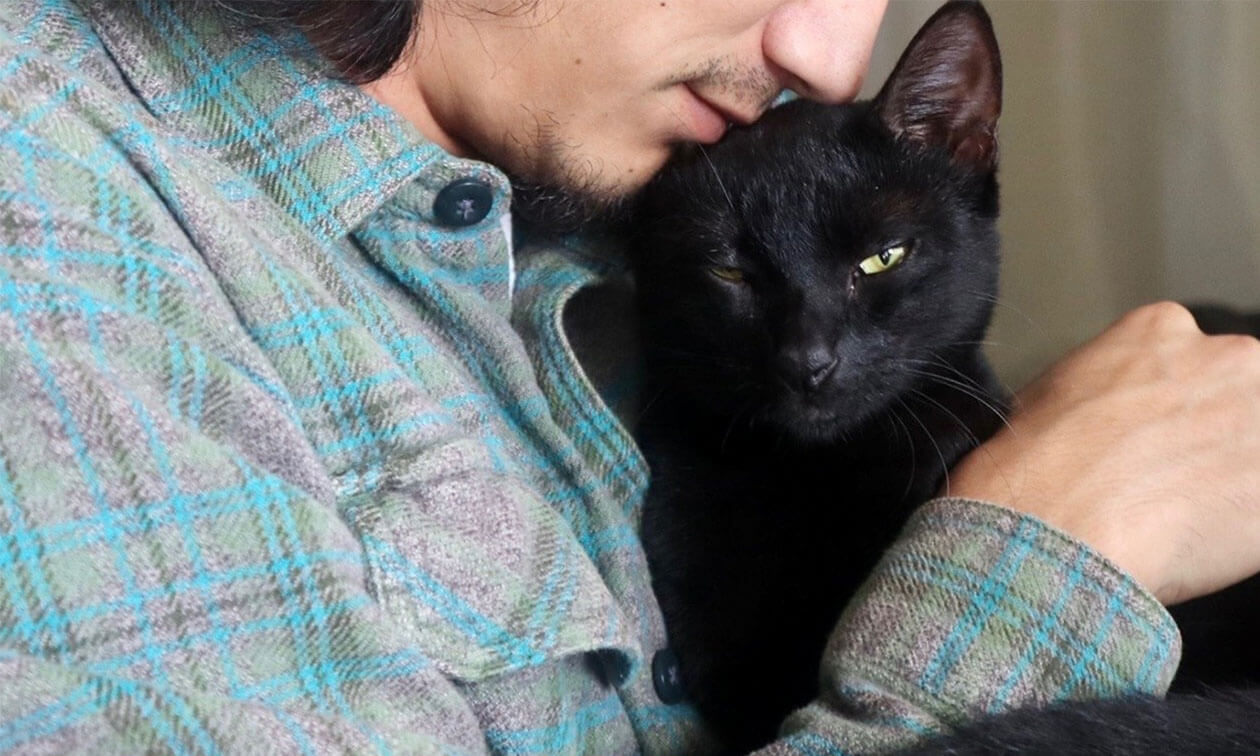If you’ve ever wondered whether you should adopt a black cat, the answer is a resounding “yes!” Black cats are wonderful companions. Unfortunately, a lot of misinformation and superstition around these furballs make people hesitate. They have a harder time being adopted and can suffer just for their beautiful black coat and the story that was thrust upon them. Let’s take a fresh look at the history and wonder of black cats.
What Breed is a Black Cat?
Believe it or not, all of today’s domestic cats actually descended from a single wild cat species called Felis silvestris lybica1. Sound familiar? Sylvester the Cat from childhood cartoons? While there are as many as 22 cat breeds recognized by the Cat Fancier’s Association that can have all-black coats, most of the black cats in our homes today are a mix of many different breeds2. So, there’s no single black cat breed.
History of Myths About Black Cats
Black cats have been through the wringer. They started out, as most cats, being revered for their independence and beauty. Cats were worshiped in many ancient cultures and made their way into mythology. The Norse goddess, Freyja, rode in a chariot pulled by two black cats. Hera, the wife of Zeus, is said to have transformed one of her servants into a black cat as punishment. Ancient Egyptians believed the black cat was a descendant of the goddess Bastet.
Superstition wasn’t far behind and soon, the resulting fear led to the black cat’s most difficult times. They’ve long been blamed for bad luck and were even considered harbingers of death, especially for ill people. They were blamed for spreading diseases like the bubonic plague, which was quite the opposite. Cats controlled the rodent population, so their presence helped control the spread of disease.
These horrible beliefs continued to spiral, leading to probably the most well-known black cat superstition — being associated with witches and witchcraft. As far back as 1233, the Vox in Rama, issued by Pope Gregory IX, declared black cats an incarnation of Satin3. As the war on witches raged, so did the war on black cats. Unspeakable things were done to these cats due to fear and misunderstanding.
Thankfully, as world exploration increased, so did a black cat’s value. They were put to work on ships, farms, and homesteads for rodent control. They made their way to new ports and settlements. Fear and superstition slowly subsided, but we still live in a world where black cats struggle to find homes. Shelters have too many ebony furs that need families.
The Sad Truth About Adopting a Black Cat
As amazing as black cats are, they’re also sadly seen as less adoptable and have a higher rate of euthanasia. This is commonly termed “black cat bias.” Researchers have investigated black cat bias and anecdotally suggest a few reasons people are less interested in adopting black cats4.
- Superstition. As seen above, black cats found themselves unjustly at the center of many superstitions.
- Misconceptions about friendliness. There’s a line of thought that black cats are less friendly or more aggressive than other cats. There is no reason to think this is true.
- Photogenic concerns. In this age of the World Wide Web, many shelters post photos of their adoptable pets. Due to their dark color, black cats are harder to photograph and easier to overlook by potential adopters.
- Difficulty reading their facial expressions. Black cats may appear less expressive than other cats. But the truth is, most of a cat’s emotions are indicated by overall body language, not facial expressions. So, this is another unfounded reason black cats often get the short end of the stick.
Fun Facts About Black Cats
Black cats are great for all the reasons other cats are great. They’re independent but loving, and they all have unique personalities. They’re incredible hunters and players, and can often sense and react to our emotions. They’re generally amazing animals. Here are a few more fun things you can expect from your black cat:
- Eye color. Black cats generally have gold eyes. Against their black fur, it makes for a gorgeous face.
- Coat color. While they may be black on the surface, a shaved black cat can sometimes have a beautiful sable brown undercoat. Depending on the breeds in their family tree, they can have other hidden coloring and markings. Their coat can also change color in the sun’s UV rays.
- They disappear. A black cat with eyes closed can seemingly disappear in shadows or on black surfaces.
- They’re unique. Since black cats are less frequently adopted than others, an all-black cat is a more uncommon pet than some.
Most interesting of all, cats technically only come in three colors — black, red, or white. All variations are from a combination, mixture, or dilution of these three colors5. So, you might say black cats are the pure essence of “cat-ness.” Consider adding a black cat to your family – they’re pretty incredible!
ZPC-02714
- The Origins of Cats. International Cat Care. https://icatcare.org/advice/the-origins-of-cats/. Accessed July 27, 2023.
- Cat Breeds. Cat Breed List. https://www.catbreedslist.com/black-cat-breeds/. Accessed July 27, 2023.
- Why Black Cats are Associated with Halloween and Bad Luck. History. https://www.history.com/news/black-cats-superstitions. Accessed July 27, 2023.
- Reasons People Don’t Adopt Black Cats. Psychology Today. https://www.psychologytoday.com/us/blog/the-modern-heart/202010/3-reasons-people-dont-adopt-black-cats. Accessed August 1, 2023.
- Cat Colors – Get the Fascinating Facts Behind Cat Coats & Patterns. Catster. https://www.catster.com/cats-101/different-cat-colors. Accessed July 27, 2023.



